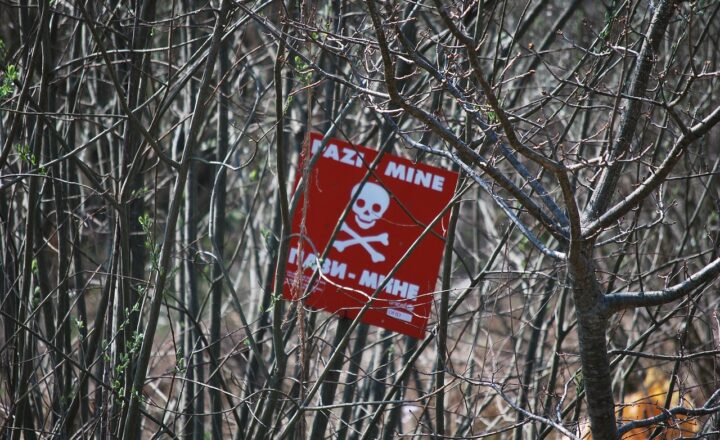The Role of Military Hospitals in Disaster Response and Humanitarian Aid
November 13, 2024

Military hospitals have long played a crucial role in providing medical care during wartime. However, their importance extends far beyond conventional military operations. In times of disaster and humanitarian crises, these institutions become pivotal resources, ensuring that affected populations receive the necessary healthcare and support they need to recover. This article delves into the multifaceted role military hospitals play in disaster response and humanitarian aid, exploring their capabilities, challenges, and the impact they have on communities during critical times.
Understanding Military Hospitals
Military hospitals are medical facilities operated by military organizations to provide care to service members, their families, and sometimes the civilian population. These hospitals possess specialized resources, trained personnel, and advanced medical technology, allowing them to respond effectively to emergencies. They are equipped to handle a wide range of medical situations, from trauma care to chronic diseases, making them an asset in disaster and humanitarian scenarios.
The personnel in military hospitals are often highly trained in emergency care, surgical interventions, and trauma response. They can work efficiently under pressure, making quick decisions that can save lives in critical situations.
1. Disaster Response: A Rapid Response Force
Disasters, both natural and man-made, often create immediate and overwhelming healthcare needs. Military hospitals are uniquely positioned to respond swiftly to these crises. Following a disaster, they can be deployed to the affected regions within hours, bridging gaps in medical care when civilian resources become overstretched.
During natural disasters like hurricanes, earthquakes, or floods, military hospitals can provide essential services such as:
- Emergency Medical Care: Military hospitals typically have triage systems in place that allow them to assess and prioritize patients based on the severity of their injuries or illnesses rapidly.
- Surgical Services: Many military hospitals are equipped with operating theaters and surgical teams that can perform surgeries onsite, which is crucial during mass casualty events where local hospitals may be overwhelmed.
- Psychological Support: Disasters can lead to acute psychological distress. Military hospitals often include mental health professionals who provide counseling and support to help individuals cope with trauma.
The ability to establish field hospitals allows military medical units to operate flexibly and set up care facilities close to the disaster zones, ensuring that affected communities receive immediate attention and treatment.
2. Humanitarian Aid: Beyond Borders
Military hospitals also play a significant role in international humanitarian aid. In situations where a country faces an overwhelming crisis—be it a famine, epidemic, or conflict—military medical teams can be deployed internationally to deliver care and support. This involvement is often coordinated with international organizations such as the United Nations and non-governmental organizations (NGOs).
Military medical aid packages can include:
- Medical Teams: Health professionals skilled in emergency medicine, nursing, and trauma care provide direct medical services to populations in need, regardless of nationality or status.
- Supply Distribution: Military hospitals coordinate with local authorities and organizations to distribute essential supplies, such as medications, surgical equipment, and medical supplies, to local hospitals and care facilities.
- Training Local Healthcare Workers: Military medical teams can train local healthcare providers, enhancing the community’s capability to respond to ongoing and future health needs. Empowering local healthcare systems strengthens resilience against future emergencies.
Through such efforts, military hospitals not only address immediate health crises but also contribute to long-term recovery and stability in affected areas.
3. Collaborations and Partnerships
The role of military hospitals in disaster and humanitarian response is often enhanced by collaboration with civilian hospitals, NGOs, and international agencies. These partnerships can maximize resources, expertise, and distribution mechanisms to ensure effective healthcare delivery to the affected populations.
By collaborating with NGOs, military hospitals can tap into local knowledge about specific cultural needs, tailor care approaches, and ensure that medical services are respectful of local customs. Furthermore, working with other governmental agencies allows for a coordinated response plan, reducing redundancies and ensuring comprehensive support for affected individuals.
4. Challenges Faced by Military Hospitals
Despite their capabilities, military hospitals face unique challenges in disaster response and humanitarian aid:
- Resource Constraints: Deploying military hospitals requires significant logistical resources—vehicles, personnel, equipment, and supplies—that must be coordinated and transported to disaster sites.
- Political and Legal Constraints: Operating in foreign environments involves navigating complex political landscapes and legal frameworks. Military medical teams must adhere to host country laws and international regulations.
- Cultural Sensitivity: Providing care in a culturally competent manner is crucial to ensuring the effectiveness of the aid. Misunderstanding social dynamics may hinder the ability to build trust with the local population.
Acknowledging and addressing these challenges is essential for military hospitals to optimize their role in disaster response and humanitarian assistance.
5. The Future of Military Hospitals in Humanitarian Aid
As global crises continue to evolve and become more complex, military hospitals will need to adapt and enhance their capabilities. This includes:
- Investing in Training: Continued training of personnel in disaster medicine, cultural competency, and emergency response will ensure that military medical teams remain prepared to operate effectively in diverse environments.
- Integration of Technology: Embracing telemedicine and other technological advancements can enhance the reach of military hospitals, allowing them to provide care even from afar and keeping records of treatments for better coordination and follow-up.
- Building Community Resilience: Engaging in community preparedness initiatives, establishing relationships with local healthcare providers, and providing training to local medical personnel can foster resilience and improve outcomes in crises.
As military hospitals enhance their capabilities, they will continue to be invaluable assets in disaster response and humanitarian aid initiatives around the world.
Conclusion
Military hospitals hold a significant position in the landscape of disaster response and humanitarian aid. Their ability to deliver rapid, effective healthcare in crises—coupled with their partnerships, specialized training, and resource capabilities—allows them to meet the needs of populations during some of the most challenging times. As the world continues to face both natural disasters and humanitarian crises, the role of military hospitals will remain crucial, providing vital support, care, and hope for recovery in the wake of adversity.







